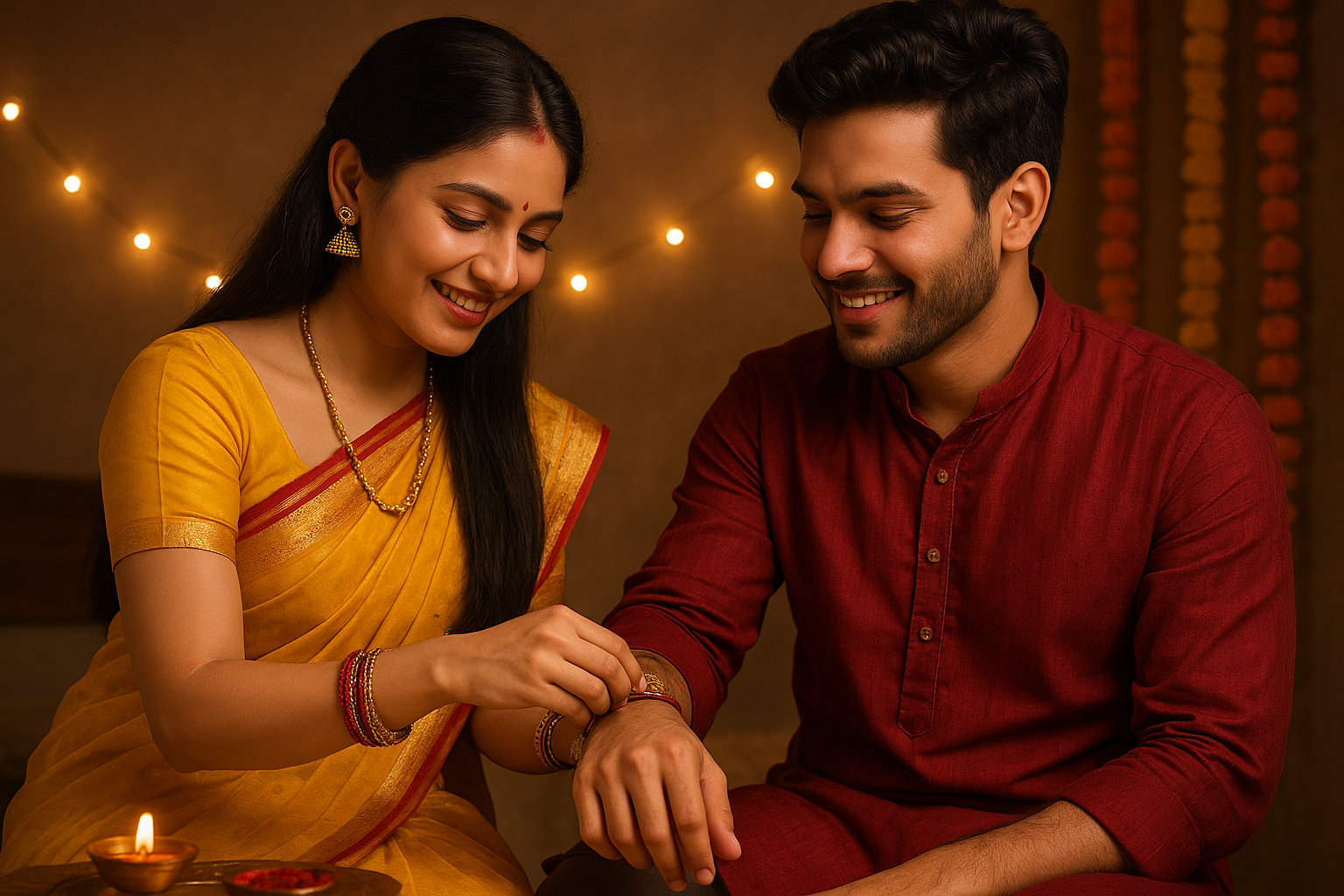Raksha Bandhan, a cherished Indian festival, is more than just a ritual—it’s a celebration of the enduring love, trust, and commitment shared between brothers and sisters. In 2025, Raksha Bandhan falls on Saturday, August 9, and families across the world are already preparing to honor this special bond in heartfelt and meaningful ways. The word Raksha means protection, and Bandhan means bond. On this day, sisters tie a sacred thread (Rakhi) on their brothers’ wrists, symbolizing their love and prayers for their well-being. In return, brothers promise to protect their sisters and support them throughout life. Hindus in India and around the world celebrate Raksha Bandhan in lots of different ways.

The day begins with families coming together. Sisters perform a small aarti (ritual with a lit lamp), apply tilak on their brother’s forehead, and tie the Rakhi. Brothers, in turn, offer gifts, sweets, and blessings. The exchange is not just of material gifts, but of emotions—laughter, memories, and promises renewed.
Delicious sweets like soanpapdi, rasgulla, and kajukatli add flavor to the celebration, while traditional clothes and decorations bring festive joy to homes.
Raksha Bandhan is observed on the last day of the Hindu lunarcalendar month of Shravana, which typically falls in August. The expression “Raksha Bandhan” means the bond of protection or care, which is now principally applied to this ritual.
In rural north India, where village exogamy is strongly prevalent, large numbers of married Hindu women travel back to their parents’ homes every year for the ceremony. Their brothers, who typically live with their parents or nearby, sometimes travel to their sisters’ married home to escort them back. Many younger married women arrive a few weeks earlier at their natal homes and stay until the ceremony. The brothers serve as lifelong intermediaries between their sisters married and parental homes, as well as potential stewards of their security.
In urban India, where families are increasingly nuclear, the festival has become more symbolic but continues to be highly popular. The rituals associated with this festival have spread beyond their traditional regions and have been transformed through technology and migration.
In today’s world, distance doesn’t limit love. With many families spread across countries, online Rakhi and digital celebrations have become the norm. Video calls, e-gift cards, and couriered sweets help bridge the miles, proving that affection knows no boundaries.
Many sisters also tie Rakhito their sisters, symbolizing mutual respect and support. The festival has evolved beautifully to represent a wider idea of care and equality.
Other factors that have played a role are: the movies, social interaction, and promotion by politicized Hinduism, as well as by the nation state. Among females and males who are not blood relatives, the act of tying the Rakhi has given rise to the tradition of voluntary kin relations, which has sometimes cut across lines of caste, class, and religion.
In every thread of the Rakhi lies a memory. In every knot, a promise. This Raksha Bandhan, may we all celebrate not just tradition, but the timeless beauty of human connection.
Happy Raksha Bandhan 2025!


